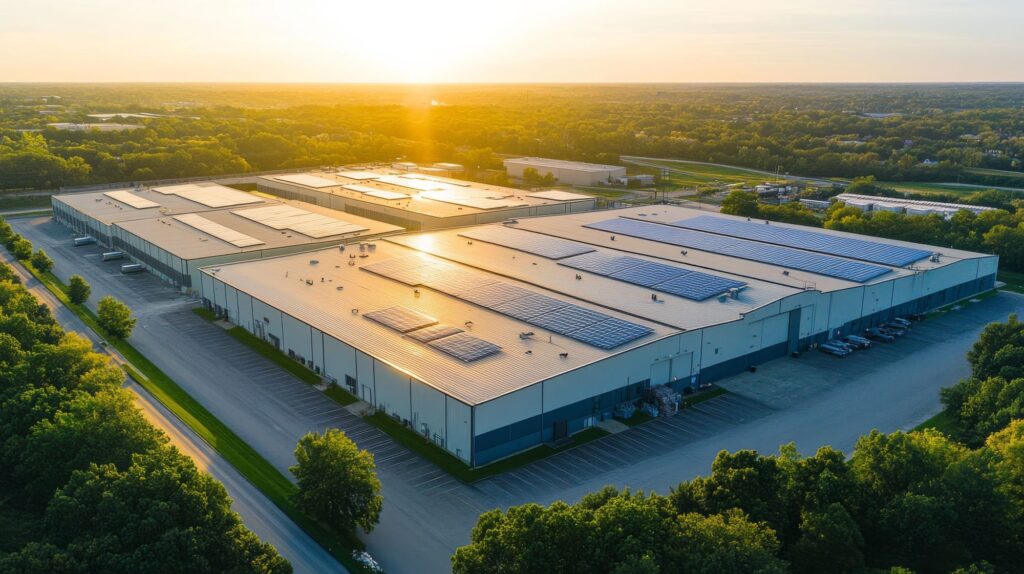During the Covid-19 pandemic and in its immediate aftermath, some businesses started to doubt the need for business premises. They found that employees could perform many tasks just as well from home and for most businesses, property represents their second biggest overhead after people.
Of course, for companies like shops and manufacturers, property is pretty much non-negotiable, but in the last year or so many traditionally office-based businesses have started to grow weary of working from home. They’ve realised the benefits of having employees together under one roof, even if they aren’t there five days a week.
It is also true that for most companies, buying a property outright is neither feasible nor advantageous, in which case renting or leasing is inevitable. Below, we provide a step-by-step guide to finding and securing a building that is right for your business.
Finding the right location

Businesses need to think hard about where they want to be geographically. For shops, bars and restaurants, this might be all about the footfall – about maximising the number of people who might pop in and make a purchase. For logistics businesses, proximity to the motorway network is likely to be the most important criterion. And for offices, access to good public transport and a range of amenities will be critical factors.
It may sound counterintuitive, but locating close to the competition may be no bad thing either. The tech, life sciences and creative industries tend to cluster and find that they benefit from being around like-minded people. Think Silicon Roundabout, Cambridge and Soho, respectively. As, law firm, Bird & Bird put it: “Proximity to your competitors isn’t always bad. It’s usually for a reason, like clients being nearby, good transport connections or value for money on rent prices.”
Finding the right property
Once a business has decided on a location, it can begin to focus on individual properties. An initial search can be done on Rightmove’s commercial property platform. The site lists many thousands of properties and allows users to refine their search in multiple different ways, including by size, price and the type of commercial property required.
It may also be that companies choose to use an agent, even at this early stage, to help with initial research and due diligence. Not only do commercial agents have intimate knowledge of their ‘patch’, they also have years of experience advising clients on their property requirements and will be able to manage expectations on what is realistic within any given budget.

Many commercial agents will be members of the Royal Institution of Chartered Surveyors (RICS) or Propertymark. This means they are regulated and adhere to strict rules on conduct and continuing professional development.
Negotiating a deal
Taking on a lease is a big deal, involving multiple commitments. As such, it’s highly recommended that businesses take professional advice, not least from a lawyer. “Don’t save money by taking out a lease without seeking legal advice,” says Bird & Bird.
“It is expensive, but worth it. You’ll need to factor in the costs to your budget. A lease is a legally binding contract. If either party fails to comply with the terms of the agreement, it could result in court action and/or termination of the lease.”
The purpose of a lease is to set out the terms and conditions agreed between tenant and landlord. They tend to be very detailed and even those who have entered into previous contracts shouldn’t underestimate the complexity.
According to Bird & Bird, a lawyer can help agree the following points with the landlord:
- Do you need to pay a deposit? If so, how much is it? Will it get refunded at the end of the lease term?
- How will the rent be paid? Cash, cheque, PayPal, BACS?
- Lease length and any break clauses
- If any rent-free periods can be agreed (i.e. whilst you get the business up and running)
- Rent and any rent review periods
- Service, insurance and maintenance charges (the total cost, what it includes and whose responsibility it is)
- When and how bills will be paid
- Can the premises be sublet?
- Will a third party or bank guarantee be required?
- Do you have any repairing and/or decorating obligations?
Energy efficiency
Energy costs are always important, but they became even more so in the last three years due to rampant energy cost inflation. Depending on what a business does, it may well be that its energy consumption is high – and so is the cost.
The good news is that before signing up to a lease, landlords are required to share an energy performance certificate (EPC) for the building. While they only measure the potential rather than the actual performance of a property, they are still indicative. The highest EPC rating is ‘A’.
In recent years, the government has set regulations for building energy efficiency. Bird & Bird advises: “Current Minimum Energy Efficiency Standards (MEES) require that rented commercial properties have a minimum EPC rating of E. From 2028, this minimum rating will be raised to C for commercial landlords, which is then set to hit B by 2030.”

What about rent?
The lease will dictate both how much rent is due and when it’s to be paid. Unlike rent on residential properties, payments for commercial payments are usually paid quarterly. Some landlords will allow for monthly payments, but this must be clearly set out in the lease.
It’s also important to think about rent reviews. Almost all commercial leases will include rent reviews, in other words fixed dates, normally every three to five years, when a landlord can change the rent depending on changes in the local market.
“This means the amount you pay can either increase or decrease, depending on the property’s market value at the time of the review,” says Bird & Bird. “It is important to note that leases allow for an upwards only review. This should be specified in your rent agreement. If you choose an up-and-coming area, your rent could increase dramatically.”
And other costs?
Many companies taking up a lease on a commercial building are surprised by quite how much business rates end up costing them. In most cases, business rates are paid by the tenant and not the landlord – and can add around 40% to the cost of renting. “Make sure you ask the letting agent for the rateable value of the property before proceeding,” says Bird & Bird.
The company adds: “Sometimes there are additional payments for business with a high rateable value. For example, in 2010 a 2p levy was introduced on non-domestic properties with a rateable value in excess of £55,000 in London. This was to help fund the high-speed Crossrail. [On the other hand], if you have a rateable value of less than £15,000, you can apply for exemptions to paying business rates and extra fees by claiming ‘small business relief’.”
In addition, Bird & Bird lists other costs that need to be budgeted for:
- Rent deposit (usually the equivalent of 3-6 months’ rent)
- You could be liable for the landlord’s legal fees (between £1,000 to £3,000)
- Land Registry and other search fees (£250 to £400)
- Notice of assignment or charge fee (£50)
- Building survey (open-ended)
Can I extend the term of my lease?
The extension of a commercial lease refers to the process by which the existing lease agreement for a commercial property is extended beyond its initial term. “It allows the tenant to continue occupying the premises and conducting their business activities for an additional period of time,” according to Wembley Solicitors.
“There are legal complexities involved in the process of renewing a commercial lease, and specific timeframes and requirements must be adhered to. Seeking legal advice from a solicitor experienced in commercial property law is strongly recommended to navigate the process effectively and ensure compliance with relevant legislation.”
Doing the deal
Once you’re ready to get the deal over the line, the landlord will send you a document – not yet legally binding – containing a description of the agreement; the rental value, currency and payment details; and the agreed timescales and proposed date of completion, according to Bird & Bird.
“At this stage, many tenants conduct a building survey to assess any problems before they move in,” it says. “You will have to pay for it. They can be up to 10% of the annual rent, with disbursements and VAT on top. You could also conduct a search with the local council to highlight any issues you need to be aware of, for example in relation to major nearby road schemes, planning and building regulations, and noise abatement.”

Once everyone is happy with the lease terms and conditions – and you have the money in place – contracts can be exchanged. “This deal will be a legally binding contract when the contracts are exchanged,” says Bird & Bird. “Completion happens once the full balance is paid.”
What happens when my business leaves?
In the normal course of things, a commercial lease stipulates that the tenant must return the property in the state that they received it – or face a lengthy and potentially expensive process.
When you move out, you may have to pay for certain repairs. The repairs you’ll need to make are called ‘dilapidations’ and should be written in the lease. “Any responsibility that is not mentioned in the lease will usually be yours as the tenant,” advises the government.
When can I get out of a lease?
You can sometimes end a commercial lease earlier than the agreed date. A commercial property lease usually continues until its end date unless it includes a break clause. A break clause is a line in the lease that allows the landlord, tenant or both to end a lease early without facing a penalty. It includes an agreed date when the lease can be ended.
“To use a break clause, you must give the other party notice,” according to the government. “The break clause will say how much. You may need to meet other conditions, for example paying the rent by an agreed date.”
In the absence of a break clause, your landlord might agree that you can either end the lease early or pass the lease on to someone else. “If these situations don’t apply you must continue to pay rent for the whole tenancy period,” the government advises, adding that it recommends engaging a solicitor.
Key steps summary
- Find the right location – be it transport, footfall, amenities or another factor
- Find the right property – use Rightmove and an agent to help with the search
- Negotiate the deal – seek professional advice before taking out a lease
- Energy efficiency – review the energy performance certificate (EPC) of the building
- Budget – understand rent dates and other costs such as search fees and surveys
- Extending the lease – seek legal advice to navigate this process
- Leaving the premises – it must be returned in the same state you received it
- Getting out of a lease – check break clauses
Sources:
HM Government – on ‘when a business leaves’
HM Government – on ‘terminating a lease early’
Copyright © 2000-2026 Rightmove Group Limited. All rights reserved. Rightmove prohibits the scraping of its content. You can find further details here.








